News Corp boss Michael Miller says of the Meta deal: ‘Facebook don’t negotiate. They dictate’
Australian news publishers argue Meta’s claim that fewer people are seeking news content on Facebook is fundamentally untrue.
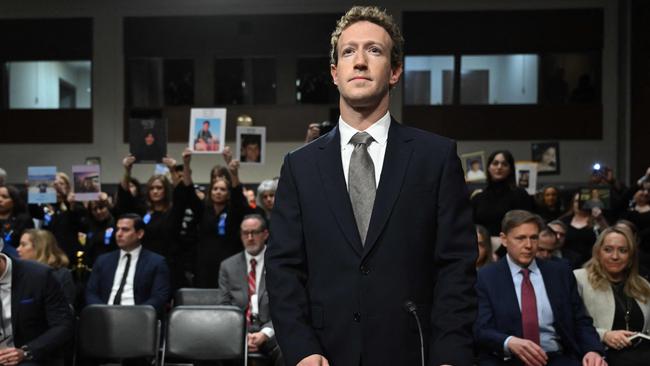
On the afternoon of February 29, representatives from Meta – the Mark Zuckerberg-controlled tech behemoth valued at $US1.29 trillion – contacted Australian news publishers out of the blue.
Meta executives wanted to conduct a series of 15-minute Zoom calls the following morning with the nation’s biggest media players, and some of the smaller ones as well, to chat about its payment-for-news deals, which over the past three years had seen hundreds of millions of dollars flow to local news publishers to compensate them for Facebook’s use of their Australian content.
It was the first time in some eight months that Meta, parent company of tech platforms Facebook, Instagram and WhatsApp, had initiated contact with most of the Australian news organisations, despite the publishers’ repeated attempts to discuss the deals.
So when Meta made the sudden request for the ears and eyes of Australian news publishers, the writing was on the wall: it was clear Meta was going to walk away from existing deals without even taking a seat at the negotiating table, in what was a clear breach of the law under the terms of the news media bargaining code.
That didn’t cushion the hammer blow for Australian media executives as the realisation set in that Meta’s move would likely cost hundreds of Australian journalists their jobs, lead to the closure of numerous news titles (especially in rural and regional areas), and facilitate the spread of misinformation and disinformation.
One by one, Meta’s three spokesmen on the March 1 calls – led by the company’s London-based head of content business development Brad Wood, along with Facebook’s local executives Will Easton and Andrew Hunter – took turns in reading from pre-prepared scripts that outlined, and sought to justify, the tech titan’s decision to walk away from the payment-for-content deals.
News Corp Australasia’s executive chairman, Michael Miller, was the first cab off the Meta rank at 9am on March 1. The call lasted for nine minutes, and as Miller describes the interaction, it was all one way.
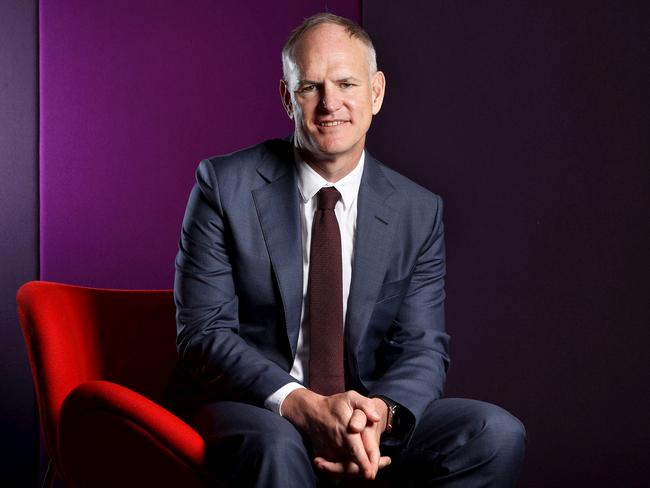
“In short, there were no negotiations,” he told The Australian. “We were simply told they had made their decision: there would be no renewal of the deals.
“We felt misled, but we weren’t shocked.”
Miller said on July 5 last year, News Corp Australia gave Meta a “fair” proposal to renew the deal, and over the next eight months the tech company refused to engage in any discussions.
In a special investigation into the behaviour of the tech giants by the Sky News investigations team, to air on Wednesday, Miller says: “I’m not surprised by their approach. Facebook don’t negotiate. They dictate. Meta has a history of abusing their market power.
Miller told The Australian: “Meta believes it is above our government and above our laws. It has no care for communities.
“Not only does it take a lot of money out of Australia, it enables … online scams and facilitates misinformation.”
Not long after Miller’s call ended, Nine boss Mike Sneesby had a brief conversation with the tech company’s panel, prompting him to subsequently accuse Meta of failing to “recognise the significant and increasing value of Nine’s journalism, unique content and brands to its platforms”.
Sneesby later told Sky News: “It’s an absolute insult. It completely disrespects the important work of Aussie journalists. It disrespects our content creators and the companies that support those journalists and those content creators, and it disrespects the Australian government.
“The idea that a major international tech company can consider themselves above our laws and regulation, I think, is a bigger issue if we let this pass.”
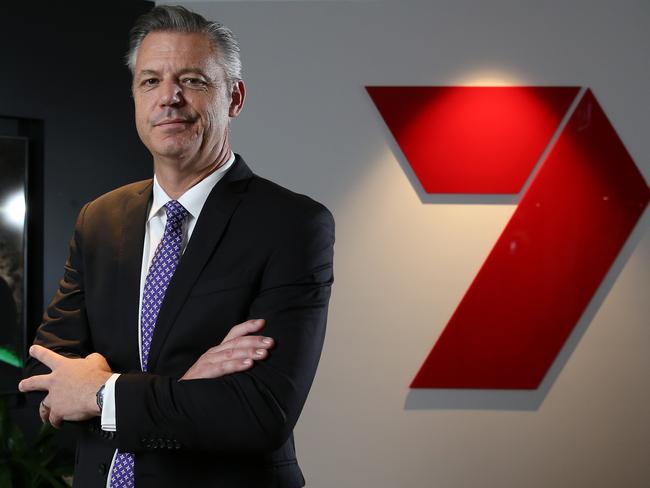
Seven West chief executive James Warburton cut short his Zoom call after just three minutes on the morning of March 1 when it became clear that Meta’s decision to abandon commercial deals with Australian news publishers wasn’t up for debate.
“We’d been chasing them for months and months,” Mr Warburton said. “It was always … ‘We’ll get back to you when we have news’.”
He told The Australian that he saw Meta’s actions as a declaration of economic warfare.
In an opinion piece published in ACM mastheads on Friday, Warburton wrote: “Meta’s announcement on March 1 that it will not renew any of the deals struck with Australian media companies for use of news content on its platforms proves beyond a shadow of a doubt that it is a corporate bully.
“What’s the best way to deal with bullies? Stand up to them. Don’t flinch. Don’t blink. Stare them down.”
Sky News Australia chief executive Paul Whittaker approached the tech company on February 28 with a proposed compromise, suggesting a six-month rollover of the network’s existing Meta deals, the biggest of which was due to expire on March 31.
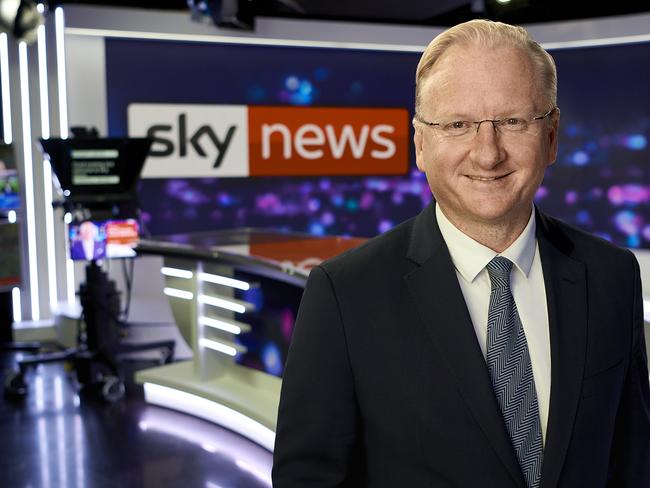
“Going back almost a year, the correspondence between us and Meta about entering discussions about renewal (of the deal) … was always along the lines of ‘We’ll let you know when we have anything to tell you’,” Whittaker told The Australian.
He sent Wood, based in London, a letter via email (copying in Hunter and Easton) on the morning of February 28, proposing the six-month rollover at the same rate and giving Meta a March 5 deadline to agree to it.
Without referring to Whittaker’s rollover proposal, Hunter responded about 40 hours later via text message, requesting a Zoom call the following day on March 1, when the company would ultimately reveal its plans.
It is likely that Sky News would have considered taking steps to have Meta designated under the code had it not agreed to the March 5 deadline set by Whittaker but the tech giant withdrew from the deal before that could happen.
“It always looked to me like they were playing for time,” Whittaker said.
“They refused to engage with us, but we bent over backwards for them … and all our attempts to hold discussions with them were made in good faith.”
Sky News’s three-year deal with Meta, secured via a contract with Facebook Ireland, was struck in March 2021 but the network had a video content deal with Facebook dating back to 2019 before the News Media Bargaining Code was introduced by the Morrison government. Whittaker said he told the Meta executives on the Zoom call, which lasted a little over 11 minutes, that he understood where the decision was coming from. “I said, ‘I know you guys are just the messengers and that this has been a decision that has been taken at a very high level in your company. We’ll see where it goes from here.’
“It was a cordial call but very clear that the decision had been made at the highest level not to negotiate.”
The ABC and Ten were other major publishers who were left disappointed by Meta’s decision, with the tech giant writing to other “partners” to explain its decision.
“As you may be aware, our company priorities have substantially shifted in recent years and we’re focused on evolving experiences across our products to best serve the changing preferences of our users. Since we first signed deals to test bringing additional news links to Facebook News, it’s increasingly clear that most people do not come to Facebook for news; as a business, it doesn’t make sense to over-invest in areas that don’t align with user preferences,” the email read in part.
Australian news publishers argue that Meta’s claim that fewer people are seeking news content on Facebook is fundamentally untrue, and as it underpins the tech giant’s case for abandoning the renegotiation process, it exposes the sham at the centre of its strategy.
Because while viewership of text content on Facebook may have dropped marginally in the past year, more and more people are watching news videos and news reels, and looking at news images.
One senior media executive observed: “The irony is that Meta want news to stay on its product, because it knows its product is better with it.
“They just don’t want to pay. Simple as that. And the fact that Meta is brazenly thumbing its nose at the laws of Australia tells you all you need to know about the imbalance in bargaining power, and how much it favours the tech giants.”
A Meta spokesperson told The Australian: “This was an important product decision that impacted various markets, both in the US and Australia. We provided publishers with fair notice that we didn’t intend to extend the deals and we will continue to pay under the existing terms of their contracts, despite the fact we’re deprecating Facebook News Tab.
“As we have repeatedly shared, most people do not come to Facebook for news, and as a business it doesn’t make sense to invest in areas that don’t align with user preferences.”
Tech Tyrants: Facebook’s War on Australia’ premieres on Wednesday 13 March at 8.30pm AEDT on Sky News Australia





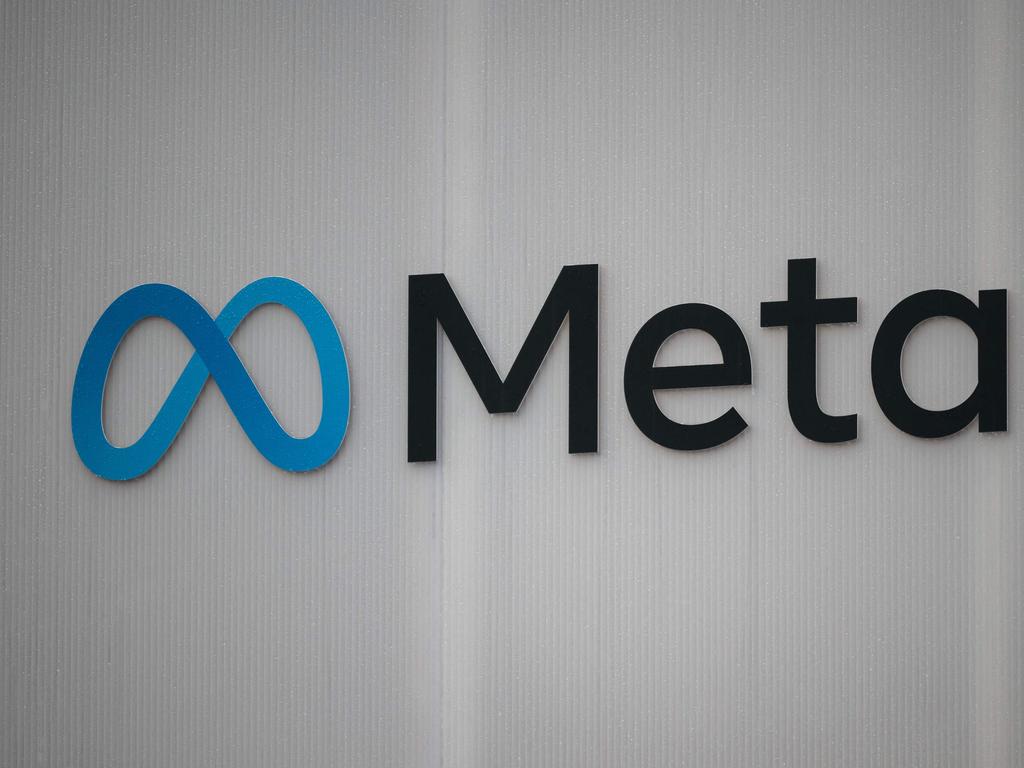
To join the conversation, please log in. Don't have an account? Register
Join the conversation, you are commenting as Logout